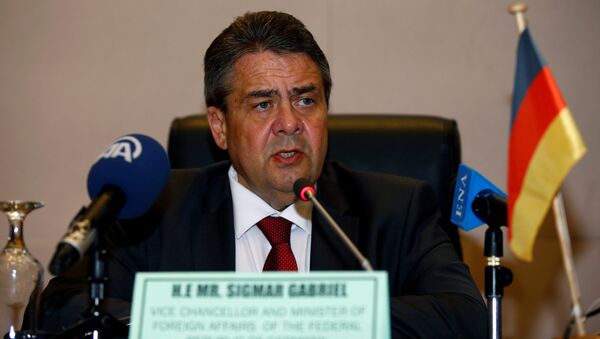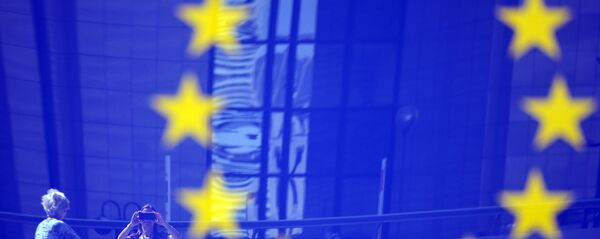Gabriel called anti-Russian sanctions "ambiguous," as they adversely affect other countries as well.
The minister added that gradual lifting of the imposed sanctions could start after deployment of the UN peacekeepers in Donbass. He also stressed that to insist on full implementation of the Minsk peace agreements before offering some sanctions relief to Russia is "not realistic."
READ MORE: Putin Hopes West Gets Tired of Sanctions Path, Ties With Russia Become Normal
Gabriel has repeatedly called for loosening of sanction pressure on Russia in case of successful implementation of the initiative on the deployment of UN peacekeepers to eastern Ukraine. However, the general European stance on the issue is that the bloc does not link the deployment of UN peacekeepers in eastern Ukraine to the gradual lifting of sanctions against Russia.
Anti-Russian Sanctions
The EU introduced anti-Russian sanctions after the start of the Ukrainian crisis and Crimea's reunification Russia in spring 2014. Western countries claim Russia has been meddling in Ukrainian internal affairs. Moscow, in its turn, denies this allegation, stressing that the referendum in Crimea was conducted in compliance with international law.
READ MORE: New US Sanctions Against Russia Are Coming, 'Expect Them' Soon — US Treasury Sec
Since the introduction of the sanctions, the EU has been prolonging them every six months. In March 2015, EU leaders made a decision to link the sanctions regime to the implementation of the Minsk agreements. Since then the economic sanctions were extended for 6 months twice a year after an assessment of the progress in the Minsk accords. However, Moscow is a guarantor of the Minsk agreements, but not the side of the conflict in Ukraine, thus Russia cannot implement measures enshrined in the document, according to Kremlin's spokesperson Dmitry Peskov.




